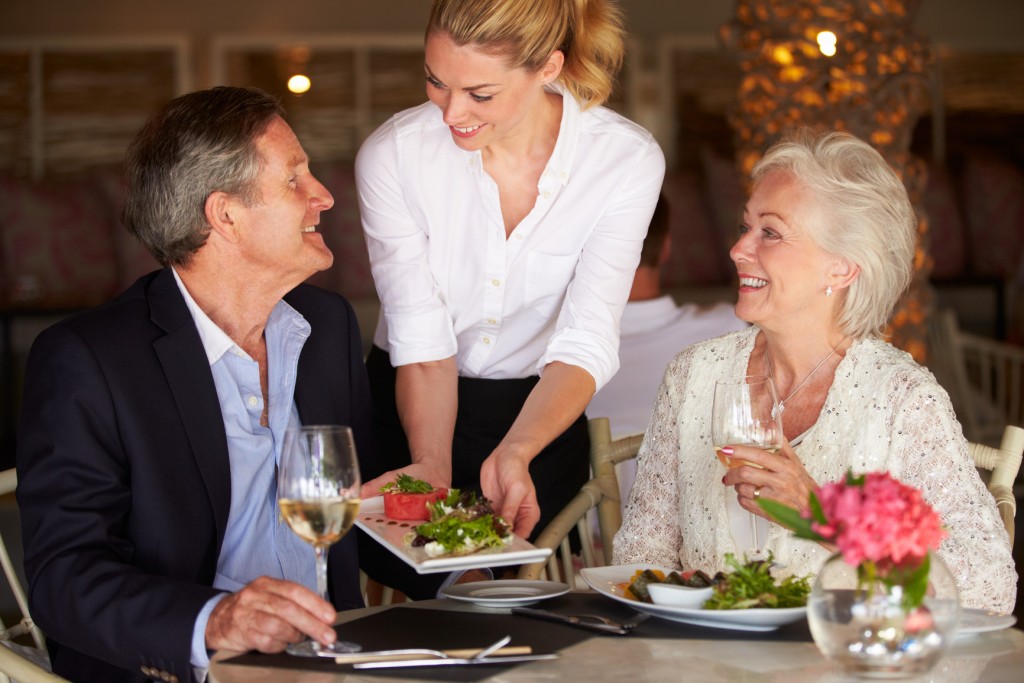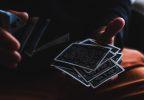How to eat healthy at your next bridge tournament
So, you’re headed to your next bridge tournament. You hit your hotel where you will be staying for the next ten days, and remember that to keep your expenses down, you didn’t opt for the full kitchen room but instead have the mini fridge and coffee maker combo. And you’re hungry. What do you do for dinner and did you remember to pack snacks?
Eating healthy while traveling can be challenging, especially if you have other things on your mind, like that doubled game you made or the unlucky slam your partner played last night. Here are a few tips to keep you sharp and healthy at your next regional:
Restaurant Tips
Of course, bridge tournaments equal many restaurant meals. Try to go for the healthiest restaurant you can find (read: not fast food), or if your choices are limited choose the healthiest thing on the menu. Let’s start with some quick restaurant tips:
1. Read the menu carefully
Many restaurants these days, due to popular demand, are adding healthy options to their menus, including smaller serving sizes (ask if they have a half order), whole grains and more veggies.When reading the menu, look for words like grilled, steamed, and baked instead of pan-fried, crispy, scalloped or dipped (foods which would be high in the wrong kind of fats, sodium and calories). And note: the fancier the restaurant, the less food you’ll get on your plate. But this is good for you!
2. Split the entree
One of my partner’s and I will often split an entree.
3. Double the appetizers
Often appetizers are smaller, and have more fresh content such as seafood or vegetables.
4. Order salad first
Studies have shown that eating a big vegetable-based salad will reduce the amount you need/want in an entree. It’s bulky and filling.
5. Skip the dessert
Need we say more?
Know your fats
According to WebMD, it’s not if you eat fat but what kind of fat and how much you are eating: “The U.S. Department of Agriculture’s 2005 Dietary Guidelines recommend that adults get 20%-35% of their calories from fats. At a minimum, we need at least 10% of our calories to come from fat. The problem is that the typical American diet is higher in fat: Roughly 34% to 40% of our calories come from fat. Why? Because they taste so good and are widely available in our food supply.”
Counter to the ‘low fat’ fad of the 90s, fats are not bad for us, in fact they are essential to bodily functions, like storing and using energy, transporting vitamins in the blood, cell growth and development, maintaining healthy skin and proper functioning of the nerves and the brain.
However we want to be eating more of the unsaturated fats (from fish, vegetables and nuts), less of the saturated fats (meat and dairy products) and little to no artificial trans fats, “used extensively in frying, baked goods, cookies, icings, crackers, packaged snack foods, microwave popcorn, and some margarines.” (WebMD)
So, choose full fat options! Avoid those ‘non-fat’ yogurts at the breakfast buffet – your body needs that stuff! But think of it as a topping for your fruit salad rather than a whole bowl. Also skip the full serving of bacon and grab the eggs and whole grain toast instead. Top it up with a green salad.
Meatless Mondays
Getting bored with the same old? Mix it up with a vegetarian meal once per week with veggies and beans for protein. Can you say Mexican? Fill your boots with avocado guacamole (packed with unsaturated fats) but hey, avoid the deep fried tortilla chips!
Eat fish
When in doubt, choose the fish instead of the cow. Fish is full of Omega3s, the kind of fat our bodies need the most. A healthy diet includes a serving of fish a few times per week.
Avoid sugar
It’s hard to eat out and avoid additives and highly processed food like sugar, white flour and salt. According to Livestrong.com: “The key (to healthy eating) is to eat foods that are as close to their natural state as possible.” Natural sugars in fruit are good for us in moderate amounts, especially when eaten with the fruit (so eat an orange rather than a glass of orange juice), but: “refined white flour and refined white sugar cause rapid blood sugar increases and add empty calories to processed foods.” In other words, making you feel full but providing very little nutrients. A sure fire way to burn out fast.
Experiencing brain fog? Research out of the University of California, Los Angeles, suggests that sugar forms free radicals in the brain’s membrane and compromises nerve cells’ ability to communicate. This could have repercussions in how well we remember instructions, process ideas, and handle our moods, says Fernando Gómez-Pinilla, Ph.D., author of the UCLA study.
Putting it all together – in the hotel room
Even with that tiny fridge you can do a bit of shopping for your “post mortem snacks” at the end of a long day of play. Instead of stocking up on potato chips, baked goods, high calorie junk foods and processed foods, head towards the produce section of the local supermarket. Snacking on veggies and fruit will keep you in good spirits and good health. Try humus as dip instead of high calory chip dips. Need something salty? Choose trail mix or baked tortilla chips and salsa. Avoid snack foods like crackers and cookies and stay away from soda.
Doctors recommend eating a healthy diet full of good fats from veggies, fish and nuts, low in sugar and in saturated fats from meats and dairy and high in vitamins a minerals from veggies, fruit and whole grains. Brain food lists also include oily fish, blueberries, tomatoes and nuts. If you keep this on your mind while ordering food from the menu or stocking up on snacks for your room, you can be sure to be eating right – and smart!
Don’t forget to move around and take a 30 minute walk each day of the tournament. Click here to read an article on the affects of sitting for long periods of time.
We gratefully acknowledge the support of Golden Riviera Casino in the making of this article and the support of this website. Online Casino Australia Get $500 Free at Golden Riviera Casino
RELATED ARTICLES
Sitting Won’t Kill You http://giftsforcardplayers.com/sitting-wont-kill-you/





